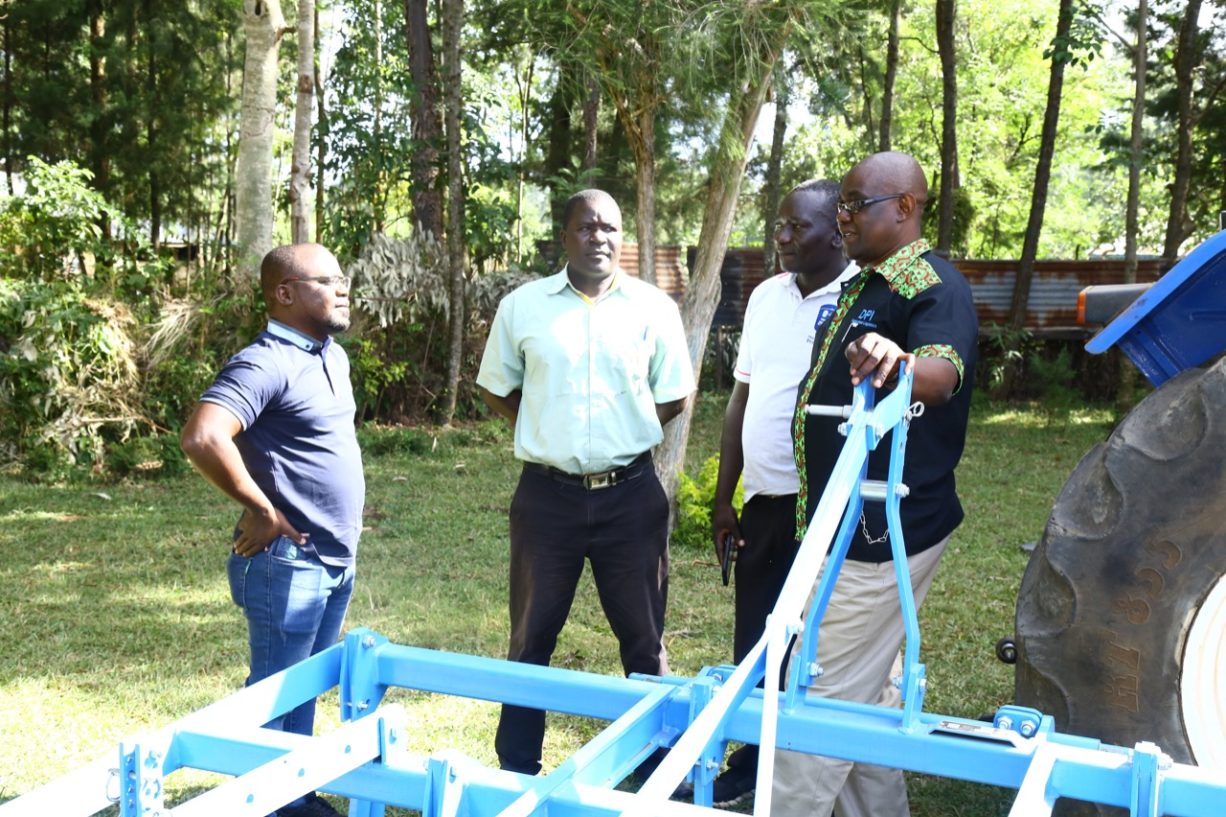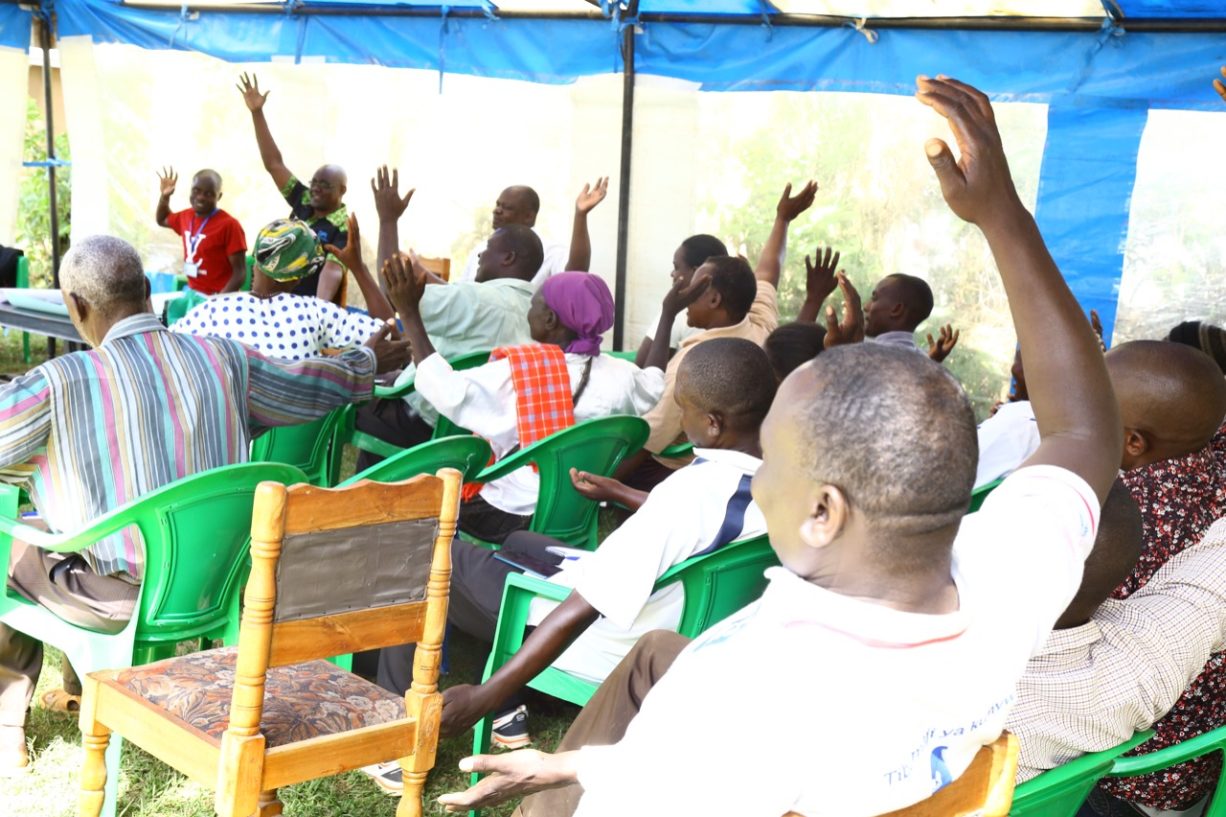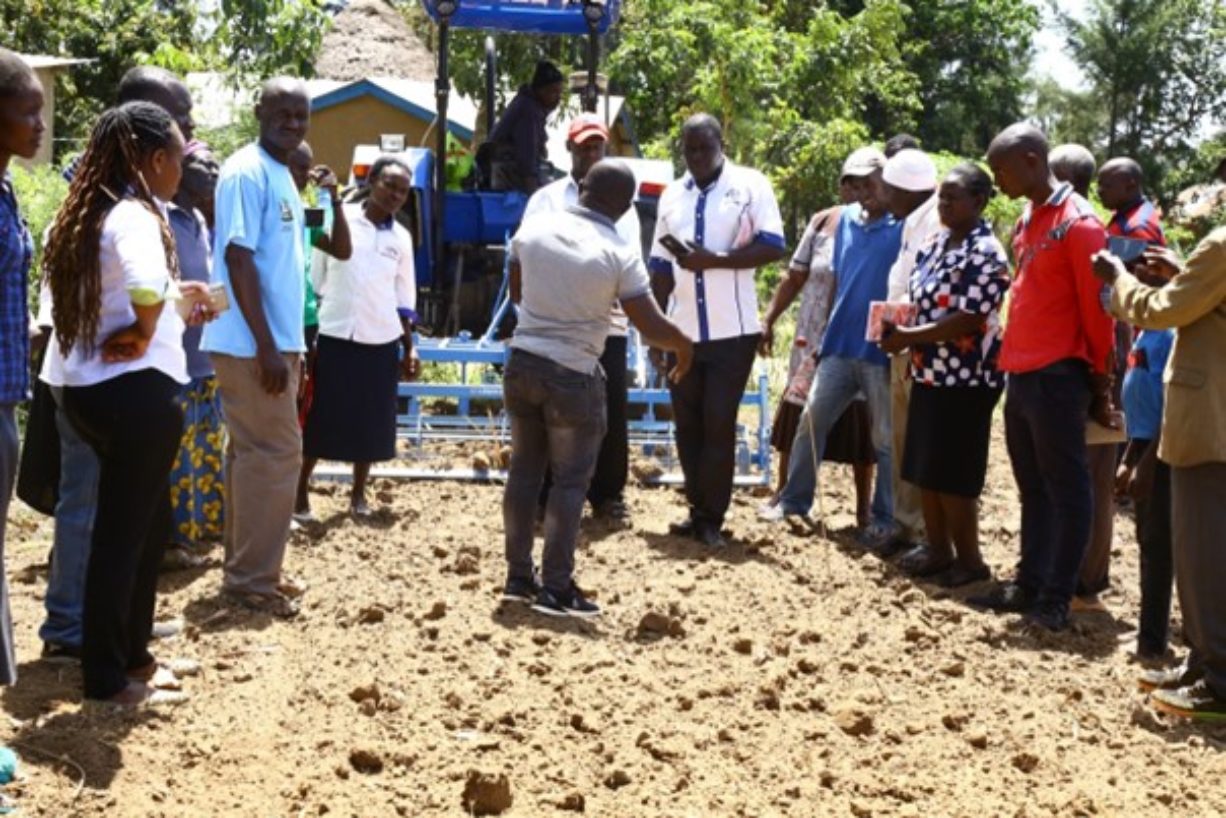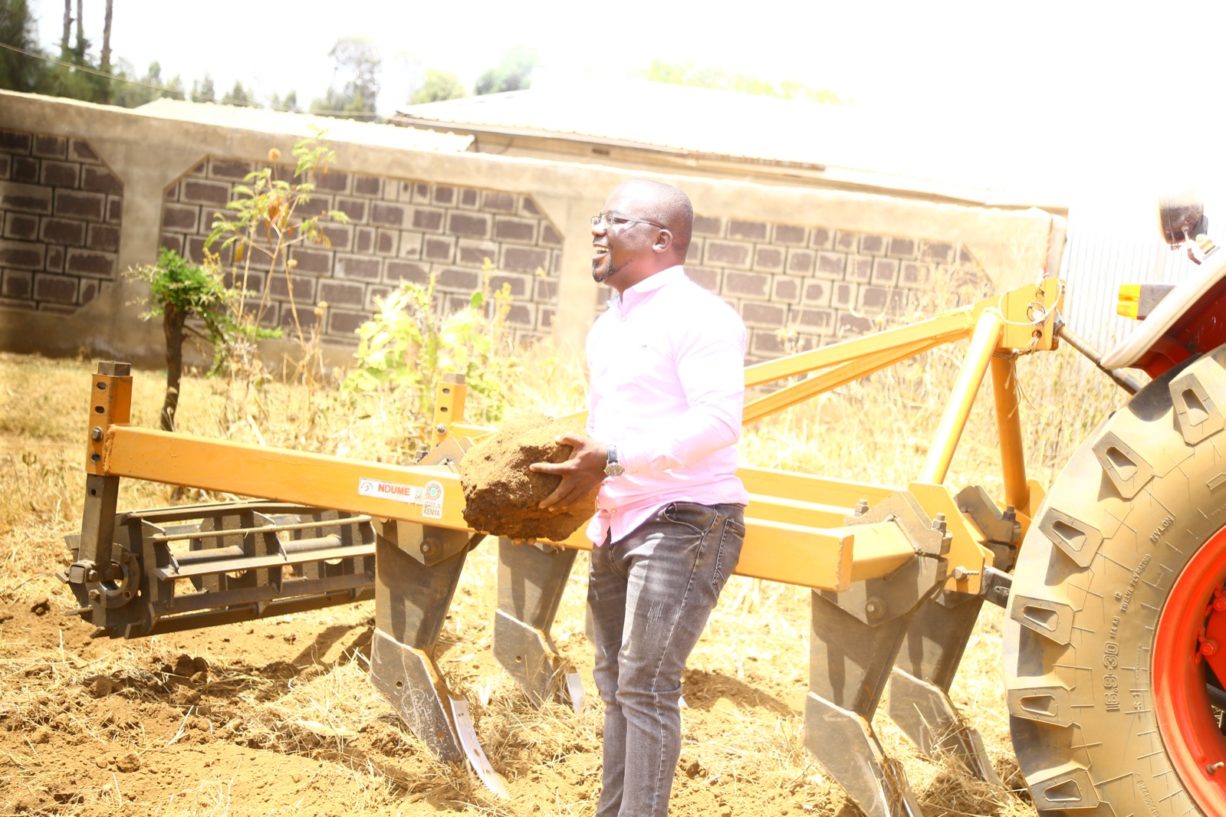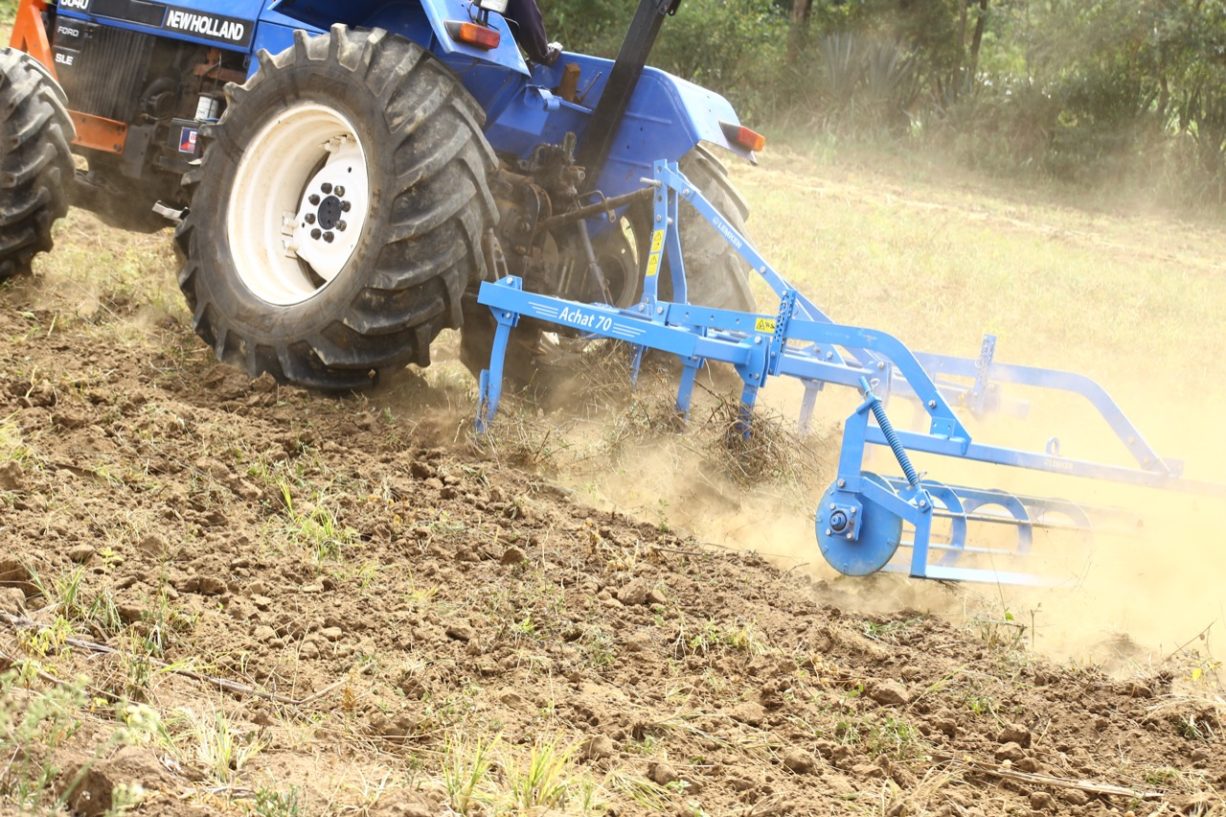In short, conservation tillage means dispensing with methods such as ploughing that loosen the soil using deep rotation and instead employing less intrusive equipment, e.g. deep cultivators. As a result, the soil increases its capacity to retain water, acquires a continuous porous structure and becomes less susceptible to erosion. In addition, costs and working hours are economised, soil life is promoted and the soil can bear heavier loads. All of these benefits come into play in Eastern African countries like Kenya, where the region is dealing with the worst drought in decades and rainfall generally occurs as episodes of heavy downpours.
Collaboration between machinery rings and the AHA has enabled KENAFF to deliver three CSF training courses each for KENAFF members in the first quarter of 2023 in the counties of Nakuru, Kakamega and Meru. In all three counties, agriculture centres around crop cultivation alongside some dairy farming. In Nakuru County, the main crops are corn, beans, potatoes and vegetables and, in Kakamega County, corn, beans, tea, sweet potatoes, leafy vegetables, Great Millet and sugar cane. In Meru County, where agroforestry is practised with avocado and macadamia and coffee and tea are grown, the field crops are primarily corn and beans. For the training courses, trainers from the machinery rings come to the respective sub-counties of KENAFF members and explain to them the advantages of conservation tillage with regard to climate change. Subsequently, participants enjoy a practical demonstration on how to work with a deep cultivator and the result can be seen in the soil.
